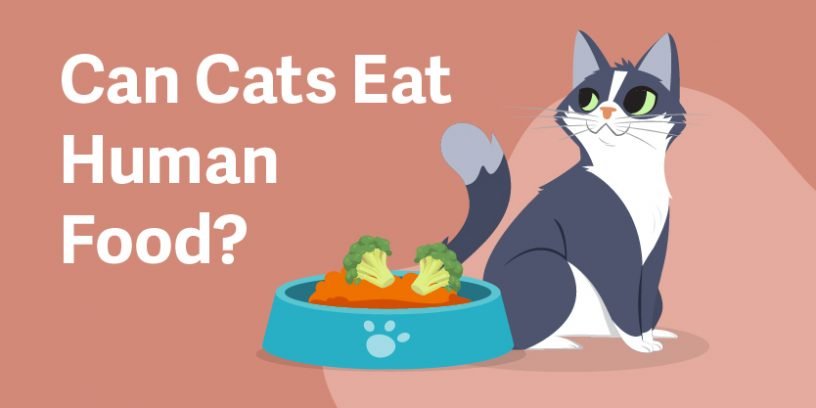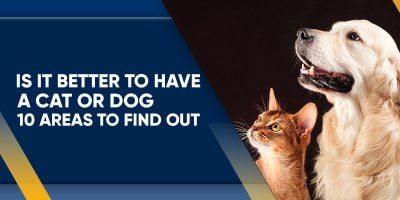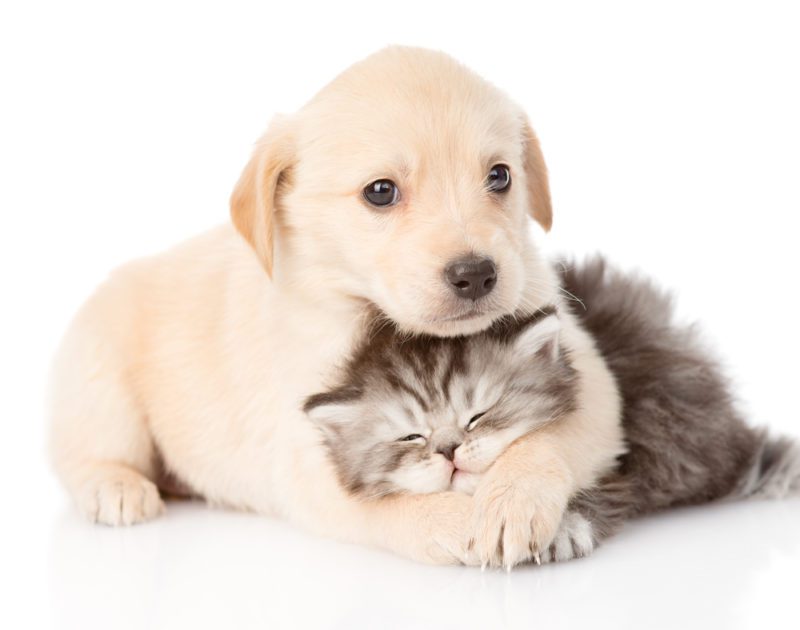People are always asking: Can cats eat human food?
Cats are part of the family, so it is just natural to share your plating with your kitty. But sharing doesn’t always mean caring, especially when it comes to which human food is good for cats. Although much of the food you eat is safe, it’s important to know what cats can eat and what to avoid from feeding them. Read on to discover which feline-friendly human food is recommended.
Table of contents
Estimated reading time: 9 minutes
What Can Cats Eat?
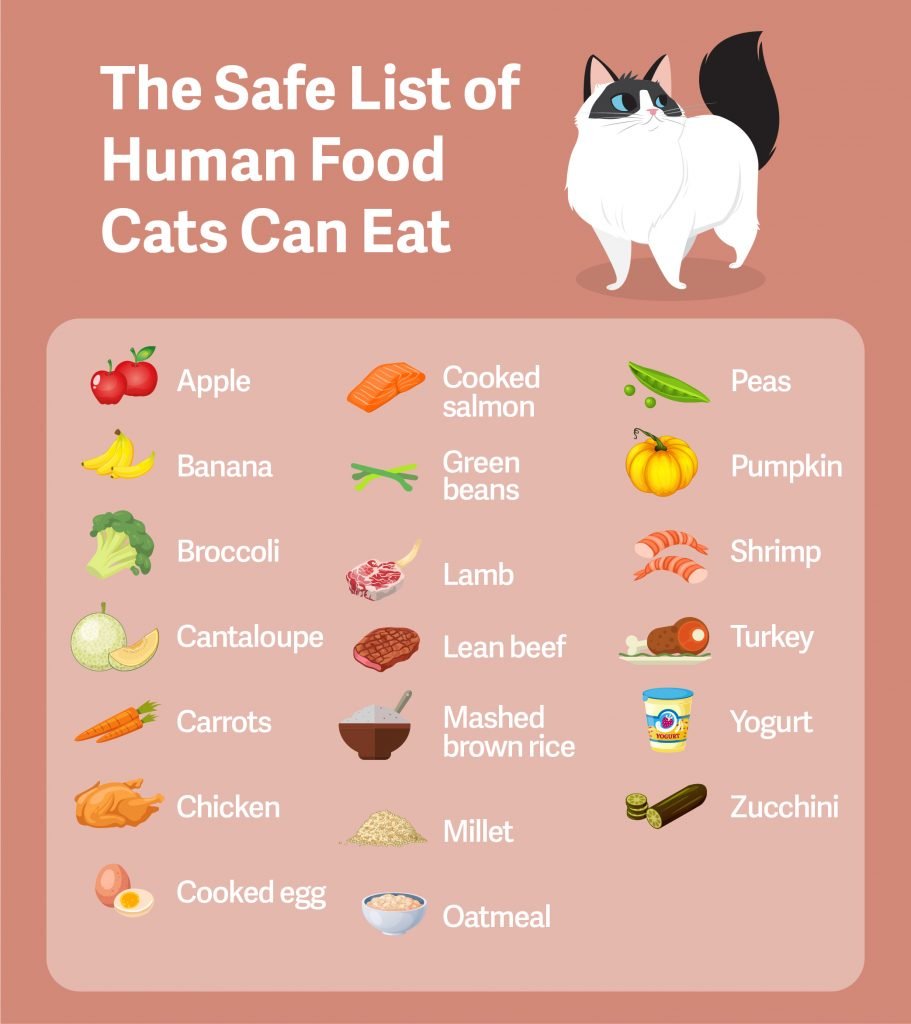
Before answering the question of can my cats eat human food, you should bear in mind that every cat is unique when it comes to tolerating human food. Here is the list of what cats can eat.
And remember, if your cat is having an adverse response to anything it eats on the safe list, please stop feeding them with the food and consult your veterinarian immediately.
The Safe List of Human Food Cats Can Eat:
- Apple
- Banana
- Broccoli
- Cantaloupe
- Carrots
- Chicken
- Cooked egg
- Cooked salmon
- Green beans
- Lamb
- Lean beef
- Mashed brown rice
- Millet
- Oatmeal
- Peas
- Pumpkin
- Shrimp
- Turkey
- Yogurt
- Zucchini
Can Cat Eat Dog Food/Dog Treats & Why?
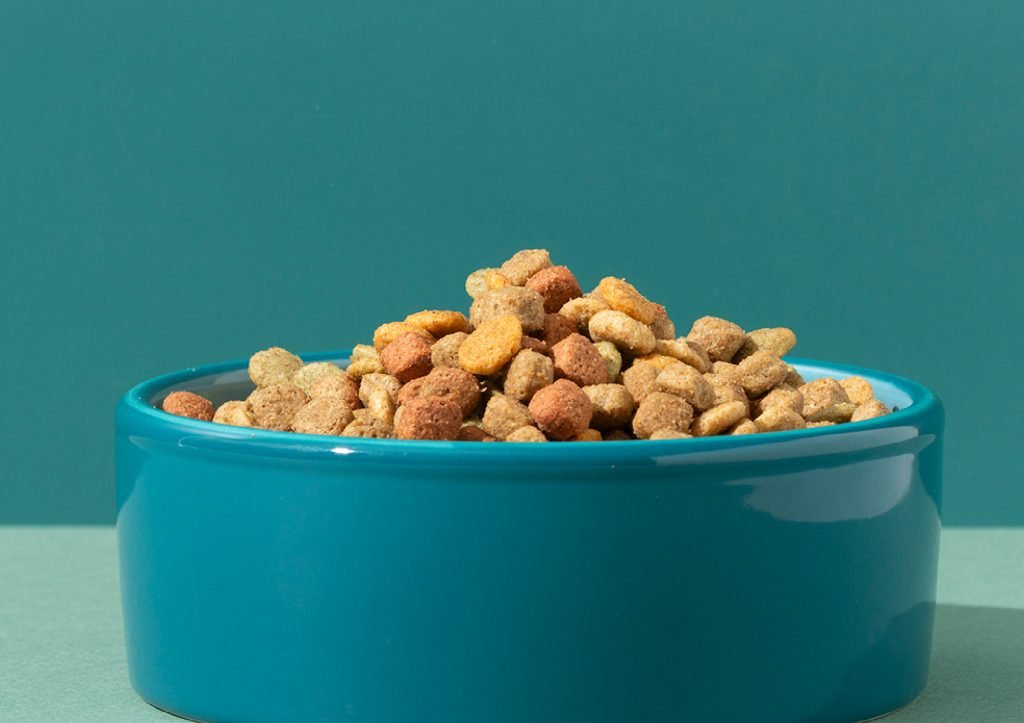
The short answer is yes and no. You can feed your cat with a small amount of dog kibble and not have any toxicity. However, cats cannot be maintained on a dog food diet. If a cat is only fed with dog food or dog treats in the long term, then detrimental consequences may occur.
Cats are considered obligate carnivores. They need animal protein to thrive. Dogs, on the other hand, are omnivores. They can easily eat both vegetables and meat. Thus, cats just can’t eat dog food because dog food doesn’t contain the higher protein content needed by cats.
Taurine is rarely included in dog food. However, all cat foods available in the market are taurine added. Hence, it’s important to ensure your cats get the nutrients they need every day.
Can Cat Eat Yogurt & Why?
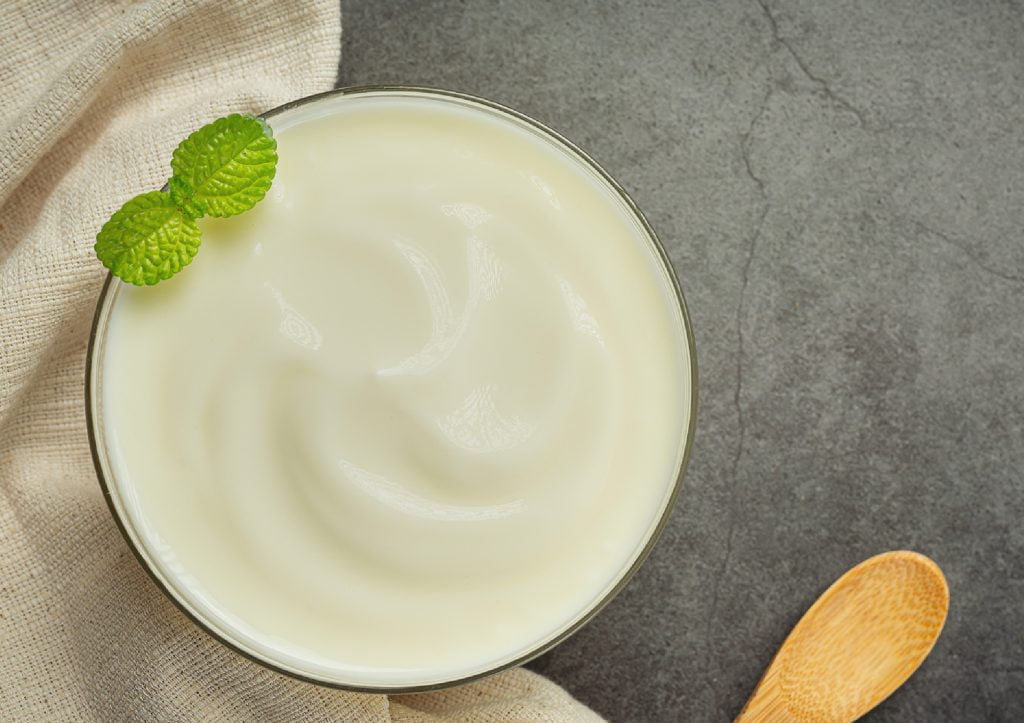
Absolutely yes! A small quantity of yogurt won’t do any harm to your loved feline friends. Yogurt offers a bunch of nutrients and probiotics to cats. The presence of magnesium in yogurt aids your cat to relieve anxiety and improves heart and bone health.
Cats cannot digest sugar! Therefore, unflavored and unsweetened Greek yogurt is the best yogurt for cats since it is full of live cultures and healthy bacteria. Don’t think that a flavor like vanilla or chocolate will be tastier.
Always decide how many calories your cat needs before feeding it any treats. Yogurt is considered a low-carb treat for cats. You can reserve 10% of the recommended calories for healthy treats. By the way, you can use the Pet Nutrition Alliance Calorie Calculator to aid you in calculating your cat’s daily calories.
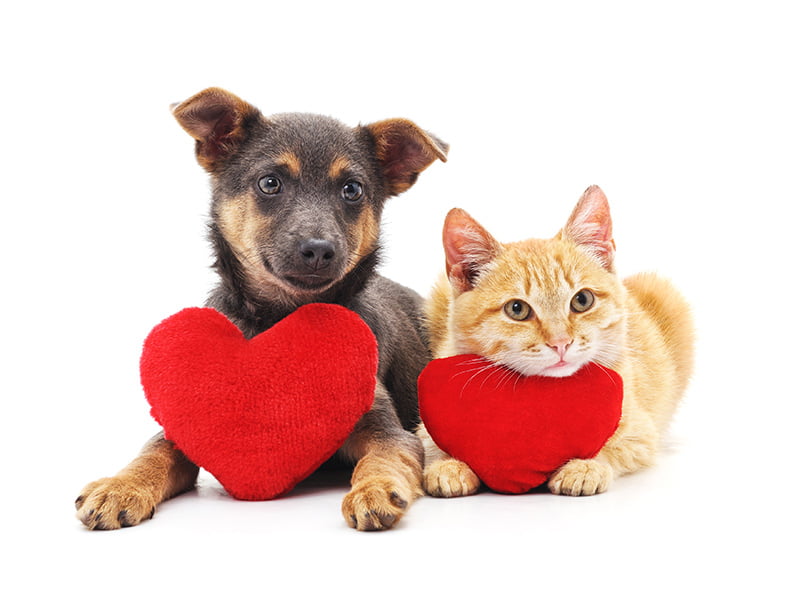
Can Cat Eat Shrimp & Why?
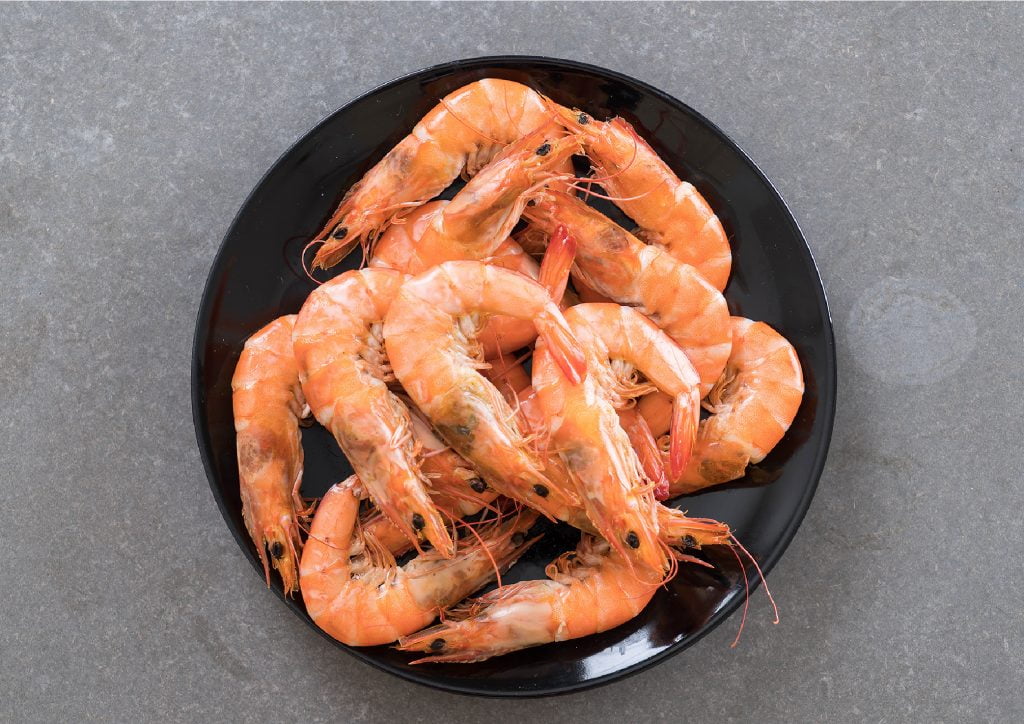
Yes, shrimp is completely safe for cats to eat. Shrimp contains protein, nutrients, and antioxidants that are healthy for cats. Since shrimp contains less protein compared to chicken and lamb, eating shrimp reduces the chance of obesity in your cats.
The presence of omega-3 fatty acid, sodium, potassium, phosphorus, and calcium in shrimp also help in boosting your cat’s immune system and cardiovascular system.
Though these are unsightly or even disgustingly off-putting, cats enjoy eating the shrimp heads, tails, and legs. It is safe for cats to consume the off-puttings.
Make sure you clean them thoroughly and remove the shrimp’s digestive system to avoid stomach upset in cats. Try to avoid giving your feline friends shrimp shells as they would be high in sodium.
No. Even though seafood meat suggests it’s healthier than potato or corn chips, it is still junk food. Shrimp chips might contain preservatives and seasonings.
Some shrimp chips even contain onions, garlic, and chives on them to make them taste better. It would be detrimental to your cat’s health. Unless you prepare the shrimp chips at home from scratch, if not, don’t feed your kitty with them.
Can Cat Eat Egg & Why?
Of course! An egg is absolutely good for cats. Cats can get a pack of nutritious benefits from consuming eggs. Cats need 11 essential amino acids and 10 are found in eggs.
Amino acids are essential in building tissues and cells. Aside from amino acids, an egg contains taurine which is vital for cats in maintaining a healthy heart and eyes.
Pet owners should be extra cautious. Though an egg contains essential benefits to a cat, you shouldn’t feed your cat with uncooked eggs.
Raw eggs can carry e. coli or salmonella, which can cause serious gastrointestinal problems for your cat. Even cats fed with raw meats should avoid eating raw eggs.
As a great source of calcium, eggshells are particularly important in building a cat’s bones and ligaments. The downside of feeding an eggshell is you have to grind them up into a fine powder and sprinkle the powder into your cat’s food.
And of course, before you grind the eggshell, make sure it is clean and cooked thoroughly.
Can Cat Eat Chicken & Why?
Yes! Chicken is a wonderful way to get a source of lean protein. It is low in fat and is filled with nutrients like selenium (which is good for the immune system) and vitamin B6 (which helps in metabolism), and phosphorus.
Besides that, the phosphorus in chicken is essential in building healthy bones and teeth.
Chicken in small amounts is fine, but shouldn’t be used as a steady meal replacement. The rule is to feed chicken to less than 10% of the total daily calories intake of a cat.
Cats should only eat plain chicken. It should be free from any seasonings or oils if possible. Thus, a leftover chicken with curry-flavored or with herbs is absolutely a no as this will upset your cat’s stomach!
Most importantly, do not feed your cats chicken if it has been cooked with onions or garlic, as those are toxic to cats.
Can Cat Eat Rice & Why?
Yes, cats can safely eat rice, but only in moderate amounts. Rice will do no harm to your cat. In fact, it might be helpful if she’s having some digestive issues. Rice can help firm up your cat’s stools and prevent dehydration.
Though rice is non-toxic to cats, rice shouldn’t be an essential part of your cat’s daily meal. Rice and other grains should make up less than 25% of your pet’s entire meal.
In addition to this, be sure the rice is not raw or undercooked as this might cause digestive problems for your cat.
Too much rice is bad for cats as more rice and less meat could result in a taurine deficiency (which leads to a weakening of the muscle cells in the heart). Aside from that, too much rice can cause cats to experience diarrhea.
Some cats are sensitive to eating rice, rice might cause allergic reactions in them such as vomiting and gastrointestinal upset.
Can Cat Eat Turkey & Why?
Yes, it is safe for cats to eat turkey. Turkey meat that’s been simply cooked is a healthy treat for cats as turkey is a wonderful source of lean protein.
Turkey includes taurine, which is an essential amino acid for cats and helps with the animal’s vision and digestion.
Never feed your cat with turkey bones! This might be hazardous as it could lead to choking in cats.
Bones can easily splinter and cause injuries in the mouth, esophagus, or even the intestines. Be sure to remove all bones before feeding them the turkey.
Aside from turkey bones, you shouldn’t feed your cat turkey if it is marinated and cooked with seasonings. Herbs and aromatics such as garlic, onions, and chives are toxic to cats.
You should always feed your cat turkey which is plainly cooked and without bones and skins.
What To Choose For Your Loved Kitties?
Introducing different textures and flavors to your cat from an early age is essential for developing its eating preferences. Aside from nutritional benefits, human food that cats can eat should not contain any seasonings, artificial flavors, and preservatives.
When it comes to feeding cats, pet parents should always remember that your cat is more sensitive to human foods. Avoid feeding them table scraps. If you’re hesitant about what food should be avoided by cats, you should consult your veterinarian.

Read More:

